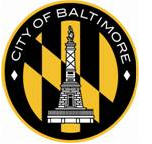Public Health Reminders Following Additional Penn North Overdoses
Friday Jul 18th, 2025

FOR IMMEDIATE RELEASE
Mayor Scott, First Responders, Public Health Officials, City Government, and Community Partners Mobilized to Respond to Overdoses in the City on Friday Morning
Public Health Reminders Following Additional Penn North OverdosesBALTIMORE, MD (Friday, July 18, 2025) - Following overdoses this morning in Penn North, Mayor Brandon M. Scott, first responders, public health officials, and community partners responded to provide emergency care and ongoing support to Penn North residents. The on-site briefing can be viewed here.
In light of today's incident, the Baltimore City Government wants to remind residents of key public health information that can potentially save lives.
Anyone experiencing or witnessing an overdose should call 911 to seek immediate care. Under Maryland's Good Samaritan laws, residents can seek emergency medical care without fear of arrest. Additional resources are available through the 988 helpline, which can connect residents with counselors and wraparound services.
The Mayor's Office of Overdose Response and Baltimore City Health Department remind residents who use drugs to practice risk reduction strategies.
- Never use alone. Have someone around in case you overdose.
- Carry Naloxone/Narcan. Both are available for free through the Baltimore City Health Department.
- Test your drugs. There are Fentanyl and Xylazine test strips available through the Baltimore City Health Department.
- Go slow. The illicit drug supply is potent and mixed with various substances, so use smaller amounts if possible.
Find Naloxone in Baltimore City Through ORPs
Residents can find naloxone - a safe, life-saving medication that can reverse an opioid overdose also known by the brand name Narcan - through Baltimore City Overdose Response Programs (ORPs). ORPs are authorized by Maryland Department of Health and provide naloxone to the community.
A map of ORPs in Baltimore City can be found here.
Naloxone has been and remains extremely effective in saving lives- including during these recent overdose events. Utilizing naloxone in a suspected opioid overdose is safe and effective. If you have naloxone, use it.
If you are unfamiliar with how to administer Narcan, more info can be found here. Similarly, a video explaining the process can be found here.
BCHD also holds regular virtual naloxone trainings. Find dates and sign up here.
Additional Harm Reduction Supplies Available
In addition to accessible naloxone (Narcan), Fentanyl and Xylazine test strips are available through the Baltimore City Health Department and Overdose Response Programs, both in the City and across the state.
As part of the ongoing response to these overdose events, the Mayor's Office and community partners continue to distribute critical harm reduction supplies to those impacted, including free Naloxone (Narcan), fentanyl and xylazine test strips, safe use kits, and other harm reduction resources aimed at reducing overdoses.
Outreach teams continue to canvas impacted neighborhoods to engage with all residents and provide access to these harm reduction supplies. Equipped with these materials, every one has the ability to save a life.
How to Access Treatment Programs and Other Support Services
The Mayor's Office remains committed to connecting all residents impacted by the overdose epidemic, including those directly affected by the Penn North overdoses, to support services.
People seeking immediate support should call 988 to connect with counselors who can provide confidential care 24/7. 988 can connect callers to quality treatment including Baltimore Crisis Response, Inc. (BCRI).
During regular business hours, people seeking medical treatment are encouraged to call the SPOT Mobile Clinic's telemedicine line at 443-483-6150.
Comprehensive Approach to Addressing The Overdose Epidemic
Baltimore City works in partnership with the State of Maryland and countless community partners to take a comprehensive public-health focused approach to addressing the opioid epidemic.
Last month, the Mayor's Office of Overdose Response released its preliminary Overdose Response Strategic Plan, establishing a framework for administering Baltimore's opioid restitution funds. The plan details 13 strategies and accompanying implementation activities across five priorities for reducing fatal overdoses by 40% by 2040 and making progress to end the overdose crisis in Baltimore City.
Maryland's Overdose Response Strategy is a strategic plan for reducing overdoses. The plan focuses on five goals that address the needs of people with substance use disorders throughout the entire continuum of care.